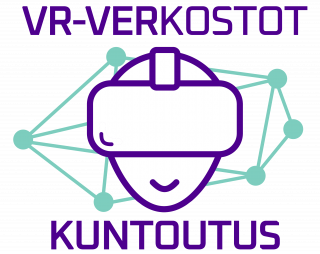2023
Sanna Garam, Tuija Laakso, Sari Lintukorpi, Pekka Paalasmaa ja Hanna Samposalo, REHA-blogi 5.5.2023: Virtuaaliympäristöt kuntoutumisen tueksi
Jyräkoski, T., Marttila, K., Penttilä M. & Lahti J. (21.3.2023): Kokemuksia VR-pelin kehittämisestä kuntoutuksen tarpeisiin (julkaistu SAMKin SAMKARIT-blogissa)
Tavakoli, A. & Jyräkoski, T. (2023). Esittelyssä VR-pelit neurologisessa fysioterapiassa (julkaistu RoboAI-hankkeen verkkosivuilla).
2022
Jyräkoski, T. & Lahti, J. (2022). Virtuaalikuntoutusverkosto-hankkeella vauhtia teknologian ja kuntoutuksen vuoropuheluun. Teoksessa SeAMK-SAMK Tutkimusfoorumi 2022 (300–315).
Segah 2022 Conference 10-12 August, 2022:
Poberznik, A., Huhtasalo, J., Jyräkoski T., Seppä S., Lahti, J., Tavakoli, A., Virkki, J. and Merilampi, S. (2022):
”A modifiable virtual reality game for neurological physiotherapy – Multiprofessional development and pilot testing”
(Link to Book of Abstracts)
Abstract:
”Serious games and virtual reality are promising tools for future rehabilitation. They represent solutions for promoting self-care and for motivating the rehabilitees. However, their wider adoption requires experience and research information from both the rehabilitators themselves and experts in the field. The aim of this study is to develop a prototype physiotherapy virtual reality game in multiprofessional collaboration and to learn about the best practices leading into positive user experience. This paper emphasizes the game development process, the Whac- A-Physio game prototype itself and the preliminary user experiences utilizing a co-design approach. It is a basis for future studies with a higher number of participants. The physiotherapy professionals were interested in developing the game in a multidisciplinary group and motivated to adopt it. The developed Whac- A-Physio game prototype was subsequently piloted in two physiotherapy clinics. The feedback was obtained from the physiotherapists by semi-structured interviewing. The physiotherapists found the game suitable for upper limb therapy, balance, and coordination training. The game presented a valuable motivational tool for their clients, improving their sense of ability and inclusion, and was thus considered a good addition to the conventional therapy.”
This work was done in Satakunta Digi health project and Virtuaalikuntoutusverkosto project. The paper was done in Faculty of Technology, Satakunta University of Applied Sciences and Tampere Institute for Advanced Study, Tampere University.

